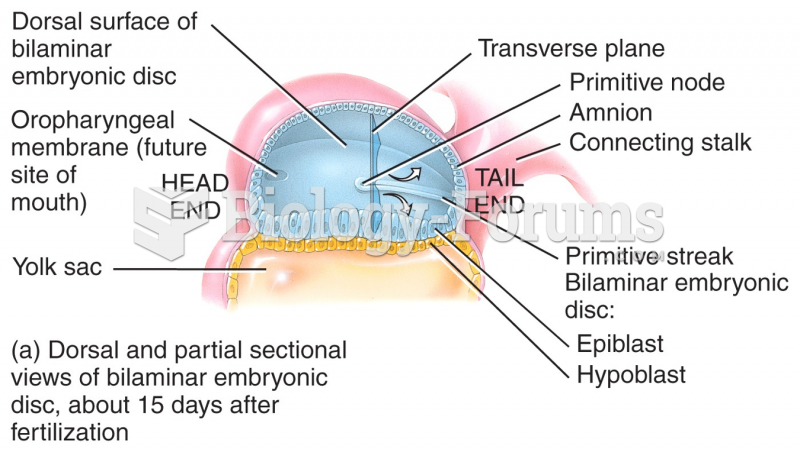|
|
|
In 1844, Charles Goodyear obtained the first patent for a rubber condom.
The tallest man ever known was Robert Wadlow, an American, who reached the height of 8 feet 11 inches. He died at age 26 years from an infection caused by the immense weight of his body (491 pounds) and the stress on his leg bones and muscles.
Medication errors are more common among seriously ill patients than with those with minor conditions.
According to the American College of Allergy, Asthma & Immunology, more than 50 million Americans have some kind of food allergy. Food allergies affect between 4 and 6% of children, and 4% of adults, according to the CDC. The most common food allergies include shellfish, peanuts, walnuts, fish, eggs, milk, and soy.
The calories found in one piece of cherry cheesecake could light a 60-watt light bulb for 1.5 hours.
 Endocarditis. The human heart has been sectioned to reveal the left ventricle and origin of the aort
Endocarditis. The human heart has been sectioned to reveal the left ventricle and origin of the aort
 The approval of a new drug is a four-stage process: (1) preclinical investigation, (2) clinical inve
The approval of a new drug is a four-stage process: (1) preclinical investigation, (2) clinical inve





